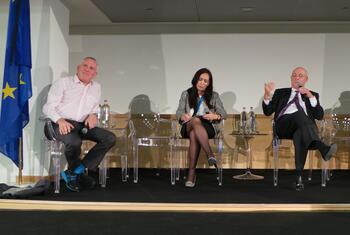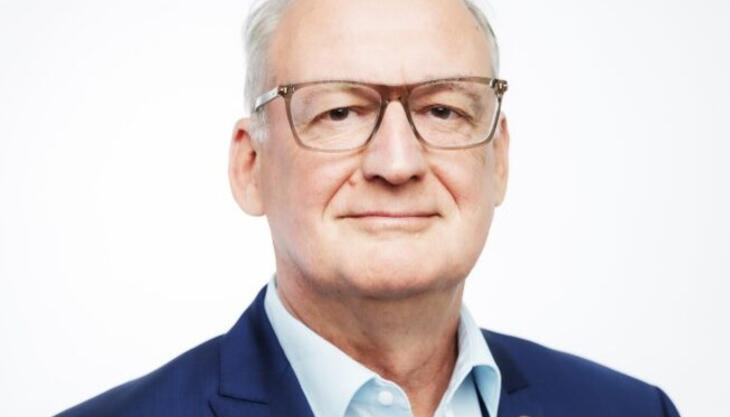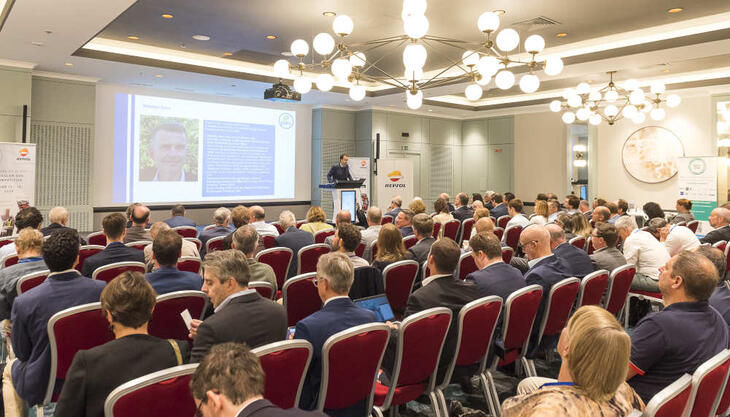Industrial renaissance in Europe is possible

This was the main message to come out of PolyTalk, an event recently organised in Brussels (November 4-5) by PlasticsEurope. Patrick Thomas (president of PlasticsEurope and CEO of Bayer MaterialScience), in his introductory address, declared: “If we truly believe in Europe’s reindustrialisation, all the sectors (chemicals, automotive, construction, and so on) must work together to achieve this objective, and not just the plastic materials industry”. This thinking is one of the reasons why, on November 4, the association, in collaboration with EuPC (European Plastics Converters), launched a “Manifesto for the competitiveness of the plastics industry”.
PolyTalk had a packed programme made up of dozens of presentations given by companies, researchers, scholars and European Commission members, and it is impossible to mention all of them in this brief bulletin. Some of them will be covered in the journal MacPlas, but in the meantime it is only right to mention, at least, the most interesting topics that were discussed at the event, which was this year structured as a debate divided into a number of sub-sessions.
Polytalk opened with an enthusiastic presentation by the renowned economist and futurologist Jeremy Rifkin, who, citing his latest book, described various examples of his “zero marginal cost society”, which will be driven by new means of communication, transport and energy, and above all by the “Internet of things”, which is able to link these three areas.
Putting online a video, a song or a course on any topic, given that it can lead to significant returns, may be taken as an example of zero cost production. Even 3D printing constitutes a move in the direction of reduced production costs. Another interesting remark made by Rifkin concerned the sharing economy, which, he predicts, will become a reality within the next 25 years. Car sharing, for example, will become the norm, and it will be unusual to own a car.
However, this futuristic view was criticised on the second day by Bob Patel (vice president of LyondellBasell’s European olefins and polyolefins division), who said that it would be better to talk, first of all, about the present historical period, and to try and issue predictions for the next 5-10 years at most, rather than speculate on what will happen in 20-25 years’ time. Patel went on to cite the European House - Ambrosetti study and, in particular, the multiplier effect of the plastics sector, which amounts to 2.38: a 100 euro increase in GDP within the plastics pipeline generates a 238 euro increase in GDP within the Italian economy as a whole. And for each job created in the plastics sector, as many as three are produced in the broader economy. This study, initially commissioned by PlasticsEurope, Assocomaplast, Federazione Gomma Plastica and Corepla, was briefly illustrated by Paolo Savona (university professor and industry minister in the Ciampi government) on 4 November, again during PolyTalk.
During the various debates, all the participants expressed their support for innovation as a starting point for the revival of European industry, but Patel remarked that: “If production in Europe is lacking, there is a risk of missing R&D opportunities and thus losing the capacity to innovate”. This was confirmed by the report by Frank Kuijpers, vice president of Global Licensing & Technology at Sabic, who showed that whereas in 2001 Europe and the United States were the main producers of patents, today a third of patents approved are Chinese.
Moving on to the topic of regulations and standards, Patel also remarked that “Europe’s politicians should therefore ask themselves whether they want to see Europe dependent on foreign imports or whether they should act differently”, for example by reducing the amount of regulations and standards in Europe and making them more stable, as requested in a number of quarters and also by some of the speakers at PolyTalk 2014.
Daniele Ferrari, CEO of Versalis, for instance, said: “We hate closing down production sites in Europe. Instead, I particularly love the biochemical sector, for its capacity to produce opportunities within a circular economy”. The circular economy concept was also underlined by Karl Falkenberg, general director of European Commission’s Environment Directorate-General, who opined that “waste management and recycling, providing they are well regulated through ad hoc legislation, have the potential to be a huge resource for promoting the European economy and European competitiveness”.
(Photo: Hanane Taidi, director of communications at PlasticsEurope, between James Woudhuysen and Jeremy Rifkin, opinion leaders who took part in the debate)

















